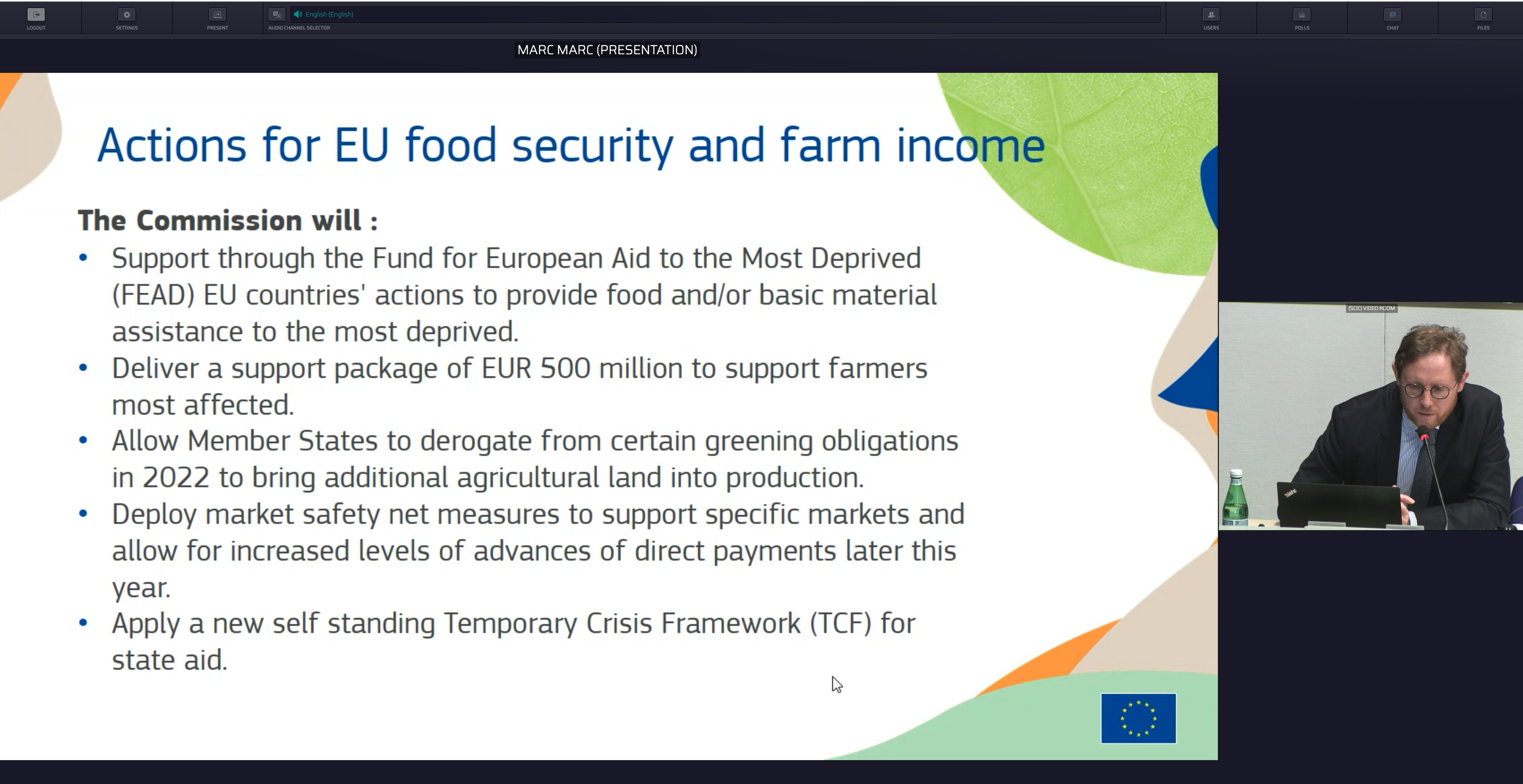Today, the European Commission has presented a range of short-term and medium-term actions to enhance global food security and to support farmers and consumers in the EU in light of rising food prices and input costs, such as energy and fertilisers. The surge in global commodity prices, further accelerated by Russia’s invasion of Ukraine, highlights again the need for EU agriculture and food supply chains to become more resilient and sustainable, in line with the Farm to Fork strategy.
The Commission is committed to taking all necessary measures to ensure that the EU, as a net food exporter and top agri-food producer, contributes to global food security, particularly in Ukraine, North Africa and the Middle East, which largely rely on imports of cereals, as well as in Asia and sub-Saharan Africa. The EU is a lead provider of humanitarian and development assistance on food and food systems.
Food availability is currently not at stake in the EU, since the continent is largely self-sufficient for many agricultural products. However, our agricultural sector is a net importer of specific products, for example feed protein. This vulnerability, together with high input costs, such as fertilisers and fossil energy, is causing production challenges for farmers and risks driving up food prices.
As written in the Communication Safeguarding food security and reinforcing the resilience of food systems that has been released today, “particular attention should be given to the most vulnerable, including refugees from Ukraine as well as low-income persons that are already affected by the high energy prices and are still suffering from the socio-economic shock caused by the COVID pandemic.”
It is indeed important “to both protect the most vulnerable citizens from food insecurity and to ensure everyone can afford sufficient amounts of healthy and nutritious food, especially vulnerable groups such as families with children, elderly and low-income persons.” For this reason, “Member States can draw from EU funds such as the Fund for European Aid to the Most Deprived (FEAD) which supports EU countries’ actions to provide food and/or basic material assistance to the most deprived, reaching over 15 million people with food aid. Member States can top up their resources by mobilising the Recovery Assistance for Cohesion and the Territories of Europe (REACT-EU) and can make best use of the additional flexibilities to their FEAD programmes provided by the Cohesion’s Action for Refugees in Europe (CARE), as recently proposed by the Commission.”
Read the full press release here.




